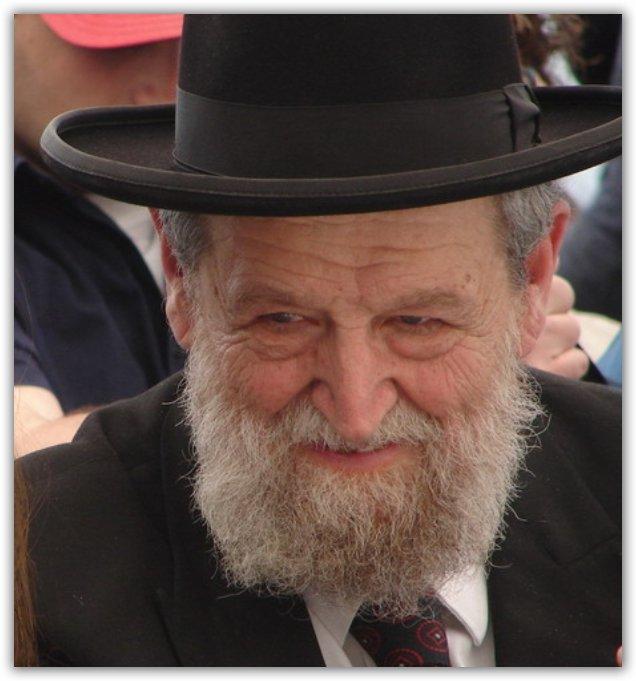New beginnings: A sermon on Exodus 15-17
This is the edited text of a sermon preached on January 19 at Stenecourt Synagogue, Salford, Greater Manchester. It was the first to have been delivered there by a woman preacher.
The other day I was looking through my old books and papers, and happened upon a talk I gave exactly 30 years ago, at Madrid University, on February 1, 1989, in honour of the 900th anniversary of our great Bible commentator, Abraham ibn Ezra (1089-1164). That talk became the foundation of my PhD, thanks to expert advice offered by friends and colleagues based at the Hebrew University in Jerusalem, to whom I am greatly indebted. The talk also became the basis for a book, all of which took me 10 years to research and write, while looking after a young family and also teaching Hebrew at Liverpool University.
In 1989 Spain hadn't even yet recognised the State of Israel and placards welcoming Yasser Arafat were strewn around the city. Nevertheless, I took the bull by the horns and, in a grand room at Madrid University, discussed Abraham ibn Ezra's theories of creation. Abraham ibn Ezra is important to Spain as her very first Bible commentator of any religion, and in modern Israel itself he is regarded as the very greatest Bible commentator of them all.

As observant Jews, we believe that G-d created the entirety of creation from nothing. This sets him apart from his creatures. However, a second meaning of creation is actually 'formation', as when Adam was 'formed' with 'dust from the earth'.
But a third definition of creation is evident from Isaiah 45:7, where G-d is described as forming light, creating darkness, making peace and creating evil.
Using the verb bara' (create) with reference to darkness and evil may seem surprising. But in these cases the meaning is to deprive an existing thing of being in order to bring forth something positive. Ibn Ezra compares bara', with the letter aleph at the end, to the similar-sounding barah, with the letter heh at the end, which means 'to cut', as in 2 Samuel12:17, referring to the cutting of bread, with a view to the pleasurable activity of eating with friends and companions.
The original cutting action is therefore like breaking a glass at a wedding. Both are seemingly destructive acts which are the necessary precondition to positive creative experiences of religious and social intimacy.
From the verb bara' (create), we also derive the phrase brit milah, a cutting act which is performed at G-d's command on the eight-day-old son in order to initiate him into our religion and bring him into our family and social circle, into something which is immensely positive for us. And brit also means a 'covenant' between G-d and the Jewish people, as well as, by extension, a 'treaty' with other peoples and nations.
In days of yore, writing was done by the scraping and cutting out of a surface, so that the act of cutting in order to forge agreements was not as strange as it might seem today. Hence the idea in Isaiah of creation as prior deprivation (by cutting away) in order to create a new entitymakes slightly more sense now.
Similarly, before appearing in public, or performing, many people talk about 'bracing themselves' or 'holding their breath' – not to mention the theatrical phrase wishing good luck: 'break a leg' – all in aid of a greater cause.
As in Isaiah, in Genesis 1 and the following verses depicting the creation, the whole mood is one of anticipation. In order to allow Israel as a body to act, G-d constantly restrains her physically. And this is what happens in today's reading. Eventually, with much poking and prodding, Pharaoh actually lets his people go, releases them, sets them free. So what does this mean?
Is our freedom to be like that of wild animals, suddenly released from the zoo, who have broken free to go on the rampage? Or does G-d need to tame this motley crowd of disgruntled slaves, our ancestors, who miss the goodies of slavery, such as regular meals – what the Romans were later to call 'bread and circuses' and Karl Marx 'the opium of the people'?
As former slaves, did we in fact have to be trained by learning the hard way to turn servitude into true service, both to G-d and to our fellow human beings and other creatures? And is it this training in discipline that actually turns us into a real human being?
So what did G-d do with this bunch of ungrateful Israelites, our ancestors, in order to turn servitude into service? Well, first of all, he took us the long way round to our eventual destination of the Promised Land, in order to discipline and nurture us in his ways.
And later on in our history, when we had become self-satisfied and complacent, G-d spoke and acted through the greatest judge of them all, Devorah, that 'fiery and enthusiastic woman' (according to Rabbi Hirsch), who was G-d's vehicle to beat General Sisera at his own game and hoist him by his own petard.
And later still in our history, we eventually went into exile. We were forced into Exile from our Land by the mighty empires of Assyria, Babylon, Persia and Greece. And after those, we encountered the present 2000-year exile period dating from the destruction of our 2nd Temple in 70 CE, a period dominated first by the Romans and then by the Christians – culminating only 70 years ago in Christian Europe with the irreparable Shoah through which the families of many of us present here today – and I include myself among this number – were and still are affected beyond belief.
This was the recent Shoah, the greatest destruction of them all, during which in three months of autumn 1942 alone, one quarter of the over 6 million martyrs were slain by their European neighbours, and a third of the entire 18 million Jewish world population, including at least one and a half million children, were slaughtered in unspeakable ways while the bystanders watched and did nothing, and in many cases were only too happy to aid and abet the murderers.
But how did we, the remnants of the Jewish people, respond to this overwhelming and mind-boggling challenge?
This is how the question was put in 1942 Jerusalem ( which was then under the very unsympathetic British Mandate) by the 14-year-old son of the Nazir of Jerusalem, Shear Yashuv Cohen, who later became Chief Rabbi of Haifa and in that capacity visited Greater Manchester in 2008, giving a sermon in our Shul – which some of you may well remember.

In 1942, when the Nazi massacres were at their height and everyone knew about them, 14-year-old Shear Yashuv, studying at Rav Kook's Yeshiva in Merkaz Ha-Rav, Jerusalem, asked his teacher, the great Rabbi Yaakov Moshe Charlap (1882-1951), the very same question that Moses asked of G-d with respect to his unruly rabble of ex-slaves, and Deborah asked under her serene palm tree in Tabor, Galil, which I have visited – and believe me it is extremely serene over there. 'G-d, where on earth are you when I need you most?'
This is how he tells the story in my book Shear Yashuv Cohen. 'Late one Friday afternoon, I plucked up my courage and decided to ask Rabbi Charlap a question ... which came from the depths of my grieving heart. Perhaps ... G-d has made up His mind that we are no longer His people? Maybe our sins and transgressions are so great that our covenant [brit] with G-d has actually been annulled? How otherwise can we explain that millions of Jews, including our foremost Torah scholars, Cedars of Lebanon, mighty advocates of Torah, are going up in flames before our very eyes? How can this holy people have become the most afflicted people on earth?'
He continues:'I will never forget the change that came over Rabbi Charlap's face, as the blood drained from it. Closing his eyes in a gesture of love, he tenderly placed his hand on my shoulders and replied: "Listen, Shear Yashuv (for he always addressed me by my first name), it is clear that the Shoah is an extreme example of G-d's hester panim, hiding His face from us. But this is in no way implies that He is no longer with us, Heaven forbid. It is the very gravest of sins to believe, or even consider, that G-d is not in our midst. The truth is that the Shoah that we are currently experiencing signals the birth-pangs of the redemption which precede the Days of the Messiah, through which we are living now. When G-d decides to end this hester panim, we shall receive great salvations and great missions. Just as the Shoah has brought inconceivable catastrophe and agony, in times to come we will witness unprecedentedly great salvations in its wake."'
What does the phrase 'birth-pangs of the redemption which precede the days of the Messiah' actually mean? And more importantly what does the meaning convey to us today?
This is a phrase used many times during our history from the biblical era up until today. Why should a period of darkness, despair and constriction anticipating something of huge creative value be termed 'birth-pangs' by our great scholars and sages, when other simpler words and phrases might do just as well?
Surely it is because G-d knows and has so designed it that the Jewish woman is and always has been the true key to Judaism's salvation. It is the Jewish woman who has kept things going and been the rock. This is why the word 'rock' in Hebrew – tzur – is similar to the word for 'agony' and 'Egypt'. For it is the woman who knows and understands the agony of creation itself, since it is the woman who suffers the constriction, the pain, the contractions, and the loss of control. It is the woman who refuses to donate her jewellery to construct the false god of the Golden Calf and it is the woman who is simply the salvation of Israel and therefore of the entire people.
The Jewish population of Israel now stands at 7 million people – thus making up for the 6 million members of our family who were slaughtered in the lifetime of some of you here today. Our world Jewish population however is not yet 18 million – we have not yet made up for the total devastation of the Shoah.
However, we should not take for granted the role of women in the most creative act of all, the only one in which G-d's creation is emulated – the gift he has given us of child-birth and child-rearing. Thus it has truly been said that woman is key to the future of Judaism. We women do not only have brains, courage and wit: we are also and exclusively G-d's creative emissaries on earth – and we should never forget it.
Dr Irene Lancaster is a Jewish academic, author and translator who has established university courses on Jewish history, Jewish studies and the Hebrew Bible.











